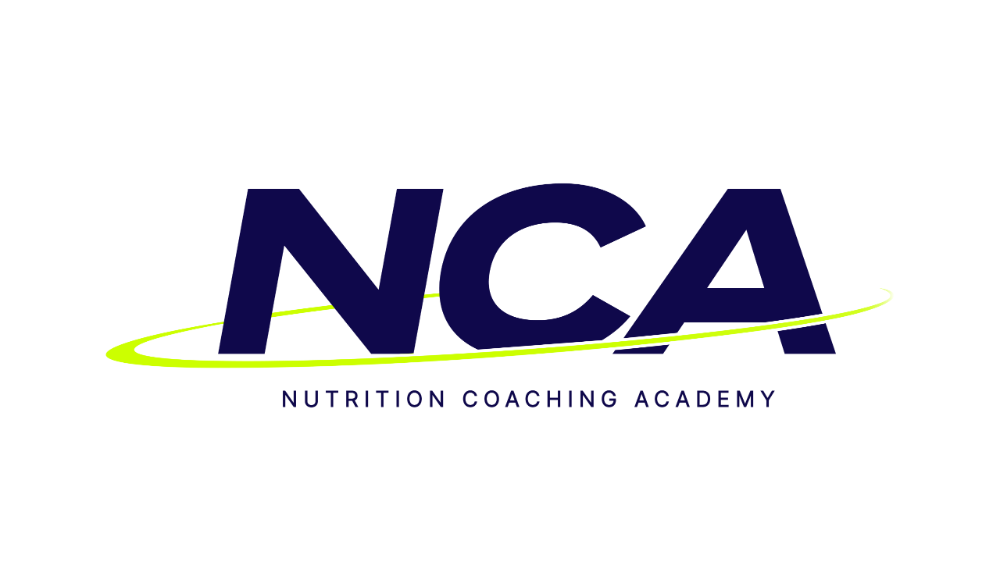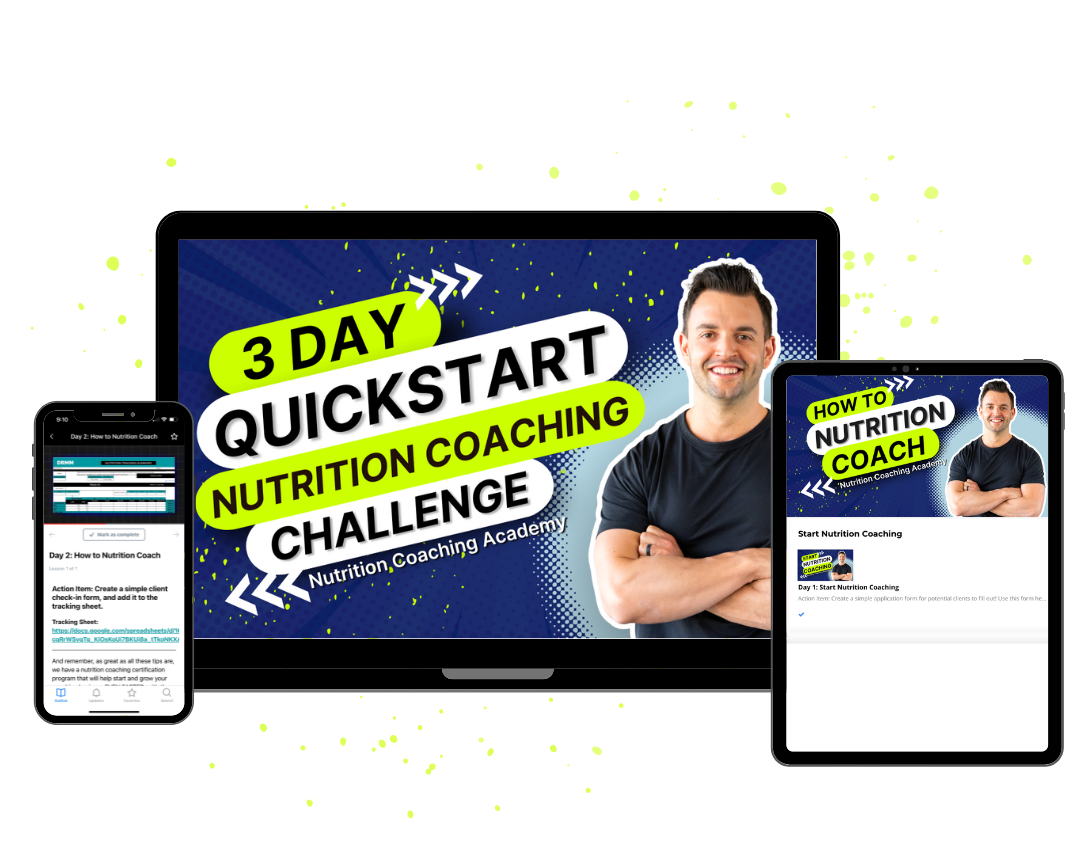Can Personal Trainers Give Nutrition Advice?
May 28, 2025
Can Personal Trainers Give Nutrition Advice?
The short answer? Yes, but only if you do it the right way.
Before we dive in, it’s important to check your local, state, provincial, and national regulations around nutrition and health advice. Some areas have strict guidelines, and in certain cases, consulting a lawyer might be a smart move to ensure you’re staying within legal limits.
That said, personal trainers can provide nutrition advice, as long as they avoid three major mistakes:
- Providing Medical Nutrition Therapy (MNT): This is reserved for registered dietitians and licensed professionals.
- Telling clients exactly what to eat: Meal plans that prescribe specific foods can cross legal boundaries.
- Misrepresenting credentials: Claiming expertise beyond your certification can land you in hot water.
Over the past six years, I’ve helped certify nearly 500 nutrition coaches, many of whom started as personal trainers. I’ve seen firsthand how they successfully integrate nutrition guidance into their coaching without overstepping their scope.
If you’re a personal trainer, strength coach, or group fitness instructor wondering how to do this the right way, you’re in the right place.
Let’s break it down.
Teach, Don’t Tell: The Right Way to Provide Nutrition Guidance

As a personal trainer, your job isn’t to hand clients a strict meal plan, it’s to teach them how to eat. Instead of prescribing exactly what to eat, you’ll help them build lasting habits and a structured approach that prioritizes what matters most.
That doesn’t mean you can’t provide food guidelines. You can recommend calorie or macronutrient targets based on their goals, needs, and preferences. However, a rigid, step-by-step meal plan isn’t the answer, even if a client asks for one.
A better approach? Set up a flexible eating structure that includes:
- Daily food targets
- Mindful eating practices
- Habit-building strategies
This benefits both you and your clients. It teaches them how to make sustainable choices rather than following an outdated six-meal-a-day template. It also protects you. If a client follows a strict meal plan long-term and experiences negative effects, you could be held liable. On the other hand, focusing on education and guidance not only minimizes risk but also leads to better client results.
Ultimately, this is the key difference between nutrition coaching and just giving out nutrition advice. A nutritionist provides structured meal plans, often for medical conditions, while a nutrition coach offers flexible frameworks, education, and accountability to help clients build lasting habits.
Coaches help clients navigate:
- What’s holding them back
- A science-based plan (calories, macros, meal ideas)
- Adjustments based on progress
- Barriers that prevent adherence
- Ongoing accountability and support
Of course, you won’t have time to cover all of this between sets. But when structured properly, nutrition coaching can become an additional paid service. One that delivers long-term success and increases the value of your training business.
Want to Learn More?
Watch the full video to learn whether or not personal trainers can give nutrition advice!
Can I Coach Individuals with Medical Conditions? Here’s What You Need to Know

The short answer: Yes, but with boundaries.
Medical Nutrition Therapy (MNT) is a structured approach used to treat medical conditions through precise dietary recommendations, often including meal plans. This is a clinical service provided by registered dietitians (RDs) and registered dietitian nutritionists (RDNs), not personal trainers.
Unless you hold those credentials, your role isn’t to provide MNT, and that’s actually a good thing. Instead of focusing on disease management, you help clients improve body composition, performance, and overall well-being through sustainable nutrition strategies. Your expertise allows clients to reach their goals faster, more effectively, and with better adherence.
What Nutrition Advice Can You Provide?
You can confidently support clients in areas like:
- Weight loss and muscle gain
- Athletic performance
- Energy levels, recovery, and general well-being
You can work with clients who have chronic conditions, but your advice should center on their fitness-related goals, not disease management. For example, if a client has PCOS and wants to lose weight, you can guide them through a structured approach to fat loss. However, you shouldn’t be giving recommendations specifically for managing PCOS itself.
A simple rule: If you’d refer to them as a "patient" rather than a "client," MNT is likely required, and you should refer out.
By staying within your scope, you provide higher-quality service while ensuring clients get the best support possible. Ignoring nutrition altogether would be a disservice, since body composition changes are primarily driven by the choices they make outside of their workouts.
Can I Call Myself a Nutritionist or Dietitian? Understanding the Distinctions

One of the biggest mistakes you can make is misrepresenting your credentials, especially by calling yourself a registered dietitian (RD) or registered dietitian nutritionist (RDN) without proper qualifications. In many places, these titles are legally protected, meaning only those who have met specific education and licensing requirements can use them.
However, terms like "nutritionist" and "nutrition coach" are not protected, meaning anyone can use them. The path to becoming one varies, depending on your background and how you want to help people.
That said, RDs can be nutrition coaches. Some of the best coaches I’ve worked with hold nutrition degrees and RD credentials. However, the reverse is not true: a nutrition coach is not an RD unless they’ve completed the necessary education and licensure.
Understanding these distinctions is key to staying within your professional scope and avoiding legal or ethical missteps. By positioning yourself correctly and focusing on what you’re qualified to do, you can provide valuable nutrition guidance while building trust and credibility with your clients.
Final Thoughts
Sorting nutrition advice as a personal trainer isn’t always black and white, but it’s absolutely possible to do it the right way. The key is staying within your scope, focusing on education over prescription, and using the right titles to maintain credibility.
When you coach responsibly, you’re not just protecting yourself, you’re providing a valuable service that helps clients achieve lasting results. By guiding them through sustainable nutrition strategies, you can have a real impact on their success while building a strong, trustworthy coaching practice.


